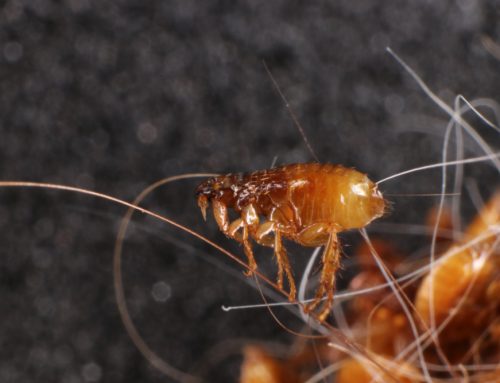The idea of parasites inside your pet’s body can be disconcerting and creepy. However, intestinal parasites are a common problem in kittens and puppies, as well as in unprotected adult dogs and cats. These unwelcome organisms, which include worms and protozoa, can cause several health issues, from mild discomfort to severe illnesses. Read our Neighborhood Veterinary Centers team’s overview regarding common intestinal parasites, how they affect pets, and practical strategies to protect your furry companion.
Common intestinal parasites in pets
Intestinal parasites are organisms living inside the intestinal tract. These organisms feed and reproduce, and many can live dormant as cysts for months to years. Common parasites that infect pets’ intestines include:
- Roundworms (ascarids) — Roundworms can affect cats and dogs, who contract them by coming in contact with contaminated soil or fecal matter. Roundworm infection signs include vomiting, diarrhea, a pot-bellied appearance, weight loss, and a dull coat. Roundworms can also be transmitted to puppies and kittens from an infected mother during nursing.
- Hookworms — These parasites feed on blood within a dog’s or cat’s intestinal tract. Pets pick up hookworms when they ingest droppings from infected animals or soil. Hookworm signs include anemia, bloody stool, weight loss, and lethargy.
- Whipworms — Whipworms primarily infect dogs who contract these parasites by coming in contact with contaminated food or water. Whipworm infection signs include diarrhea, weight loss, anemia, and dehydration.
- Tapeworms — This parasite affects cats and dogs, causing weight loss, scooting, and visible segments in stool. Pets become infected with tapeworms by ingesting fleas or prey animals, such as rodents.
- Giardia — This tiny protozoan can live for long periods in water and soil, and thrive in an infected host’s intestinal tract. Giardia signs include diarrhea, weight loss, and lethargy.
- Coccidia — These protozoan parasites can be contracted when a cat or dog ingests contaminated soil or feces. Coccidia infection signs include diarrhea, dehydration, and weight loss. If left untreated, coccidia can become life-threatening.
Intestinal parasites: Impact on pets
Intestinal parasites can lead to various health issues, ranging from gastrointestinal (GI) distress to severe systemic illnesses. An infected pet’s illness signs depend on the parasite type and the infestation severity. In young kittens and puppies, parasites can stunt physical development and cause significant health problems. In severe cases, parasites can be life-threatening because they can lead to complications such as severe anemia and organ damage.
Protecting your pet from intestinal parasites

Although parasites are ubiquitous outdoors, you can help your pet avoid contracting the diseases these pests carry. To prevent parasites from compromising your pet’s health, follow these tips:
- Schedule regular wellness exams — Ensure your pet has their annual veterinary visits to maintain their overall health and prevent diseases and parasite infestations. During these exams, our veterinarian conducts a fecal test to detect parasites before they cause severe health issues.
- Administer preventive medications — Administer deworming medications and flea preventives prescribed by our team. These medications can reduce your pet’s risk of contracting parasites.
- Maintain a clean environment — Maintain a clean living environment by regularly cleaning your pet’s bedding, toys, and feeding areas. Promptly dispose of feces in your yard and litter box to discourage bacterial growth, parasites, and other pathogens that could harm your pet.
- Provide clean drinking water — Ensure your pet always has access to clean, uncontaminated water. Do not allow your pet to drink from puddles, streams, or other potentially contaminated water sources.
- Avoid wildlife contact — Minimize your pet’s exposure to wildlife, because they often carry various parasites.
Intestinal parasites are common, yet you can protect your pet from the diseases they carry by following a comprehensive prevention plan that includes regular veterinary care, proper hygiene, and preventive medications. Schedule a wellness exam with our Neighborhood Veterinary Centers team so we can help ensure your pet is healthy and parasite-free.






Leave A Comment